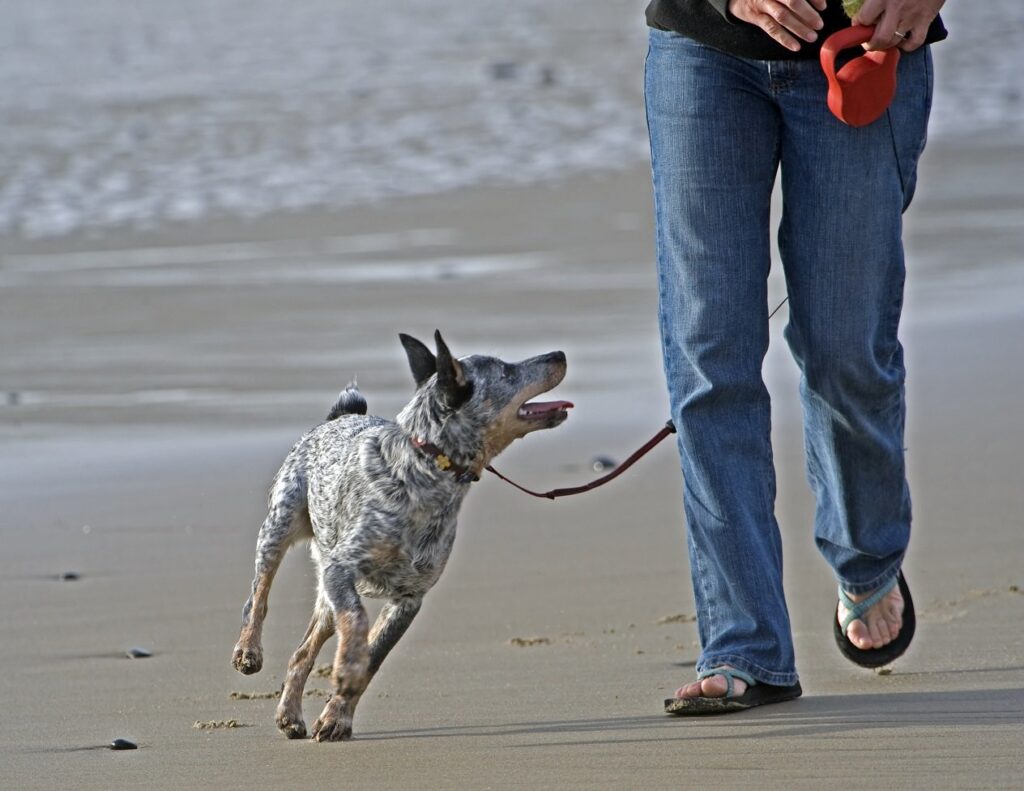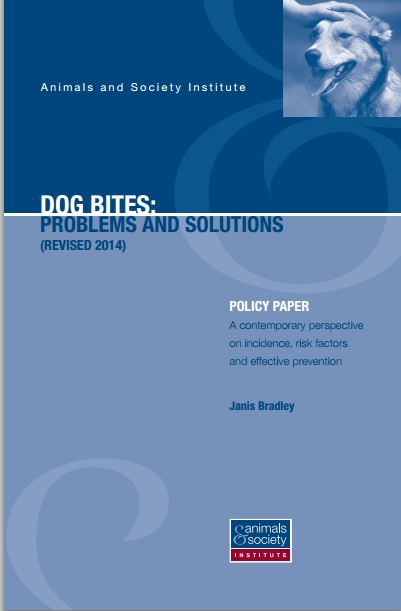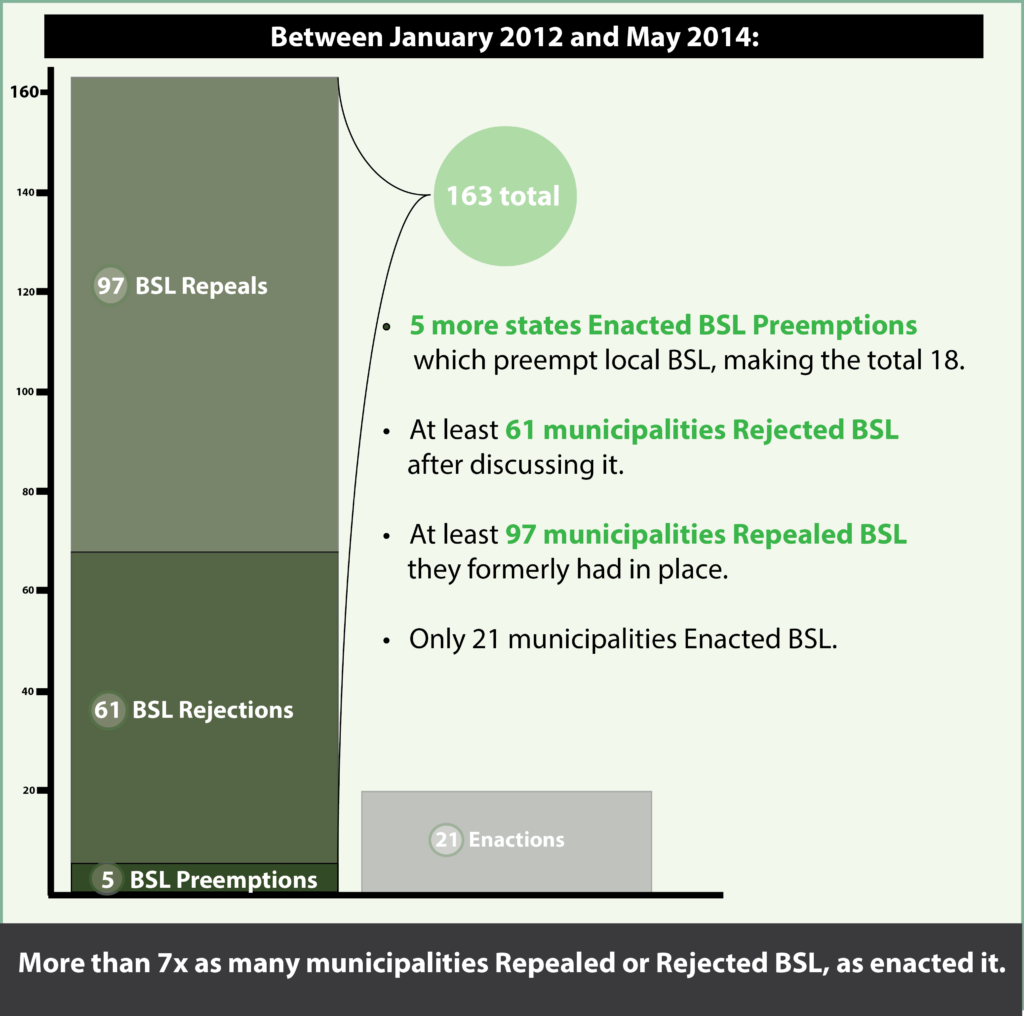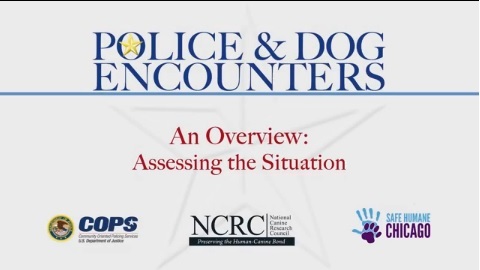
Dog Bite Prevention Week Fact Sheet: Companionship is the best prevention
You are your dog’s first line of defense.

You are your dog’s first line of defense.
Once again researchers at the Family Dog Project in Hungary have confirmed an ability that dog lovers have long suspected in our canine companions. In
AVSAB released a position statement expressing their opposition to breed-specific legislation.

Second edition of “Dog Bites: Problems and Solutions” Released.

Breed-Specific Legislation on the Decline : 5 more states no longer allow BSL & more than 7x as many U.S. Municipalities repealed or rejected proposed

The Telly Awards has named the National Canine Research Council and Safe Humane as a winner in the 35th Annual Telly Awards, Employee Communications and

The heartbreak of a family dog’s death in a police shooting can be avoided while keeping officers safe according to a recent Associated Press story [1]

National Canine Research Council (NCRC) is growing. Janis Bradley, who joined NCRC last year, has been named Director of Communications and Publications. The current Director,

This week is Dog Bite Prevention Week, and here’s something that most press releases, websites, and lists of do’s and don’ts may not mention: Dogs

The City of Monash has spent almost $100,000 defending itself in court cases involving dogs targeted by the breed-specific provisions of Australia’s Domestic Animals Act.